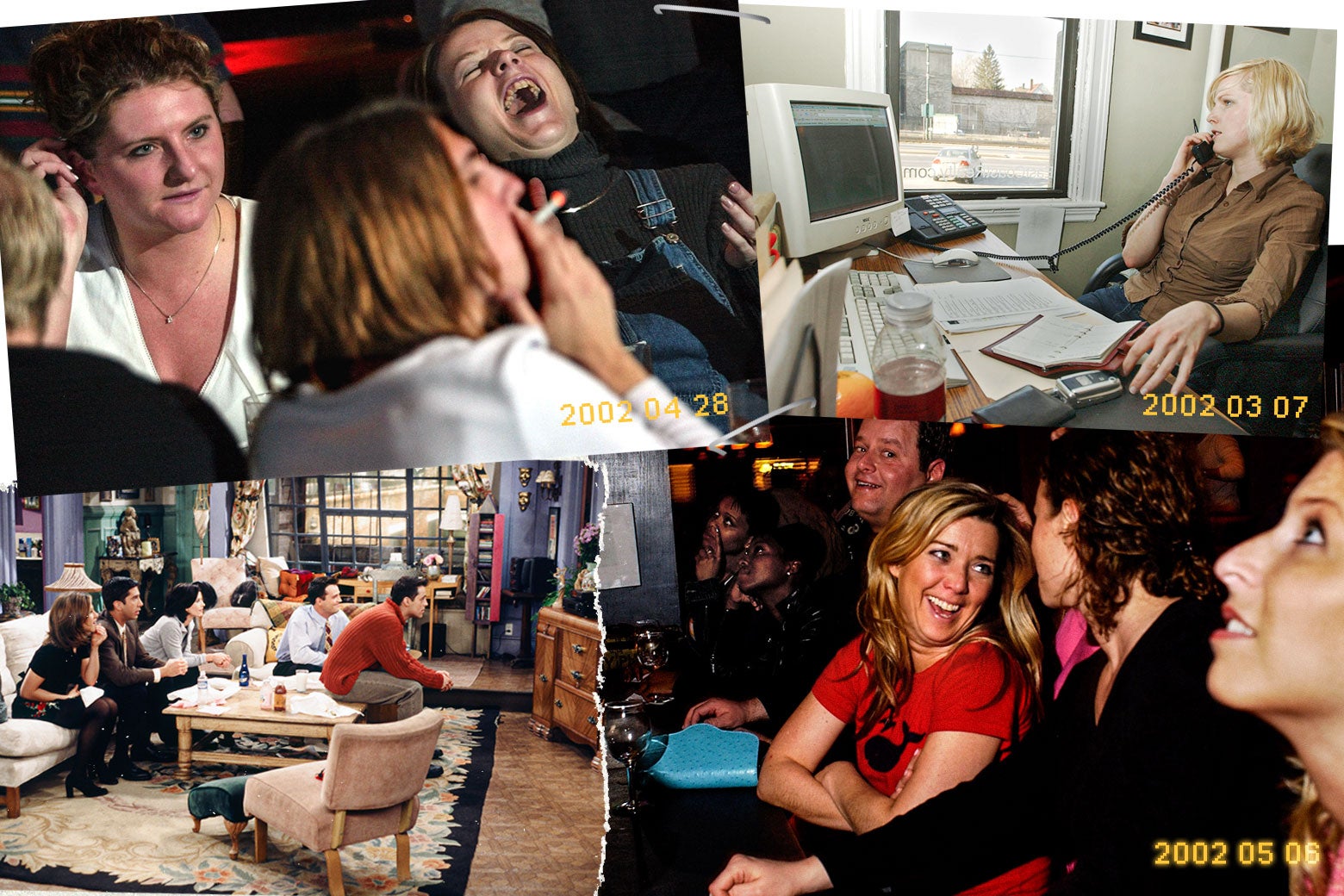- cross-posted to:
- technews@radiation.party
- cross-posted to:
- technews@radiation.party
TL;DR (by GPT-4 🤖):
- The author reminisces about life before the ubiquity of cellphones and the internet, particularly focusing on the after-work hours.
- The concept of being unreachable after work hours is alien to younger generations who are constantly connected and expected to be available at all times.
- The author and his peers recall the days when work emails didn’t exist, and work communication was restricted to work hours only.
- The article highlights how the growth of remote work and the pandemic have blurred the boundaries between work and personal time, with a survey suggesting that U.S. workers were logged into their employers’ networks 11 hours a day in 2021, up from 8 hours pre-pandemic.
- The author interviews people of his age group about their experiences around 2002, when they were about 27 years old. They recall waking up just in time for work, commuting with newspapers or books, and using work phones for personal calls.
- After work, they would engage in activities like swing dancing, improv classes, or simply visiting friends. Plans were made over the phone or via work email, and people were less likely to flake as there was no option to send a last-minute text.
- They recall the days of watching whatever was on TV, renting movies from Blockbuster, and playing games on their desktop computers.
- The article concludes with a reflection on how different life was before the internet and cellphones became a constant presence in our lives.
Thank you for the GPT-4 summary!
No problem! It does a really good job (compared to 3.5 which often hallucinates).
Who else remembers sitting on the toilet reading the back of your shampoo bottle for the millionth time bored out of your mind? hahaha.
Old magazines were always a nice surprise, even if at some level I knew they were coated with invisible poo particles.
Watching TV and playing video games hasn’t changed that much. Except that people rarely play video games together in person now sadly.
Local coop was so nice
I’ve been a single player JRPG dude since the NES days. I had never been a social gamer.
I have a friend who tried to get me to join him and his online buddies on every new big multiplayer game. Out of the literally dozens he recommended to me, I bought maybe two, and those two have a great single player campaign.
I’ve always preferred single player games, and I feel like I don’t waste money like I would on whatever the current hot MMO is. MMOs go stale or the community changes, and then you will probably never play it again. Single player games just largely don’t go that way and are repayable.
Not only that, but matchmaking being an “required” part of every remotely-competitive online game has destroyed any sense of community that can be built within the game.
Before matchmaking took over everything you’d have dedicated servers run by groups of users who actively fostered a community. They would manage admin/mod duties on their server and so you could find a server with a like-minded user base.
It actually has interesting parallels to the enshittification of sites like Reddit. Before there was more of a focus on small groups and communities that self-regulated (dedicated servers / subreddits) and over time it has shifted to an algo-driven feed of content (feed of default subs / matchmaking).
In 2002 I was working for an Internet company (Genuity), had a cell phone in my pocket at all times (this one: https://mobile-review.com/phonemodels/sonyericsson/image/t68i-1.jpg), and had cable broadband (1.5MBs) at home. When I bought my first house (condo) at the time I specifically selected a location that had high speed Internet because being without it would be unbearable! I remember telling the real estate agent that I would only buy a house that had high speed Internet and she looked at me like I was crazy! I’m sure she was thinking, “Like that’s important. What a weirdo!”
I guess what I’m saying here is that the people mentioned in the article were out-of-touch scrubs! It wasn’t as bad as they described. My friends and I would all chat with each other online to coordinate and we’d show up at various events/locations (people’s houses, concerts, theaters, etc) with tickets already paid for (usually over the phone though because not every venue had it but TicketMaster let you buy tickets over the phone since like the 1980s).
It definitely did feel like a VIP experience a lot of the time showing up with your group of friends (all in our early 20s)–bypassing the often enormous ticket line–then proceeding to walk up to the bouncer/ticket people and just giving them our names which they would verify by checking a printed list that was attached to a clipboard with a white sheet of blank paper over it to hide the names (so people couldn’t just glance at it and say, “that’s me!”). A few years after 2002 such tickets finally started getting bar codes and it became a bit less, “VIP” hehe.
What I’m saying was that all these things and more were available to the people in the article and they weren’t expensive “luxury” features that only the rich could afford. They were available and advertised extensively for everyone to use. It’s just that these folks in the article were just like soooooo many people at the time and just refused to explore or try things out on the Internet. They saw URLs (and AOL keywords, LOL) in ads and it probably didn’t even register in their brains. They were probably also afraid to buy things online (a very, very common attitude back then).
These people were the early Gen Xers that would be dumbfounded when you’d ask them for their address to get to their party/event/whatever and you’d have to interrupt them when they’d start rambling off complicated landmark-based directions, “No… I just need the address.” (because you were going to just print out directions using MapQuest). Then you’d be the only person to show up to the party on time because you were the only one that didn’t have to navigate via landmarks (“Go three stoplights and make a right after the Sunoco station…”).
I give employers my Google voice number and turn off notifications. Keep the tab up during work hours and don’t have to worry about being reached after work.
swing dancing, improv classes, or simply visiting friends. Plans were made over the phone
Oh, was that what everyone else where doing while I sat home in front of a book/offline computer?
That resonates lol, I still remember when cellphones didn’t exist, what a more “peaceful” world it was :D
Ugh, more “get off my lawn” articles. There are tons of young workers who will 100% ignore their employer the second they clock out. Anyone who has the option to do so, and complains about constantly being pinged, has no boundaries and frankly deserves it.
Your employer doesn’t own you, you can turn off your notifications.
Seems like a typical “everything was better when I was young and had energy” article. It is easy to remember good old times fondly and fail to acknowledge that young people might have same fun just slightly differently and that times might be harder for younger generation as wages are not that great and higher education is more competitive and demanding.
The only thing I can agree with on this article is that. yes. I too had a “social life” outside of my first job when I was younger. I went to work at min wage job. Came home at 5. Dropped $100 every Friday on the kitchen table (because I had to pay rent to my mother), and immediately went back out to who knows where.
The thing is that was the only thing I had to worry about back then. I did not have a car. I could not rent an apartment because at 18 in 1995 how the hell are you gonna have Credit in the first place out of High School? And I’m from the glorious chest-beating, so proud to be neglected by my parents, Gen-X.
Other than that, I didn’t read the whole article because I agree with everyone else’s sentiment. I for one am happy a lot of those things are gone today.
A lot of these old farts like to point their fingers at youth today because they didn’t immediately move out of their parents home at 18… well I wonder why that is?
“People with no boundaries or employment rights have no idea what we do after work” - In Europe we have a right to disconnect, everyone I know is more than able to use it. This is not a technology issue, this is a rights and culture issue.
In the USA, work culture means losing rights. Those of us that have pushed back against illegal behavior in the workplace are pretty quickly blackballed.
Trust me, we know workers have more rights in Europe. There’s little-to-nothing we can do to enact those sorts of protections here. The rich have us by the throat.











